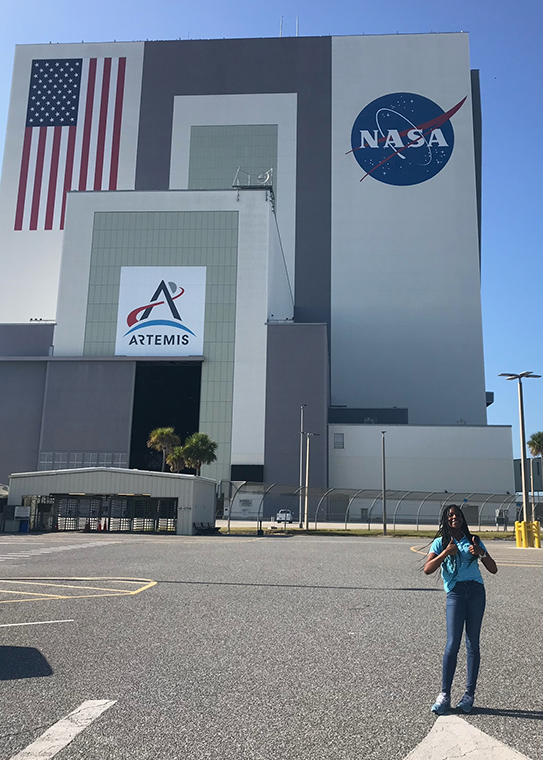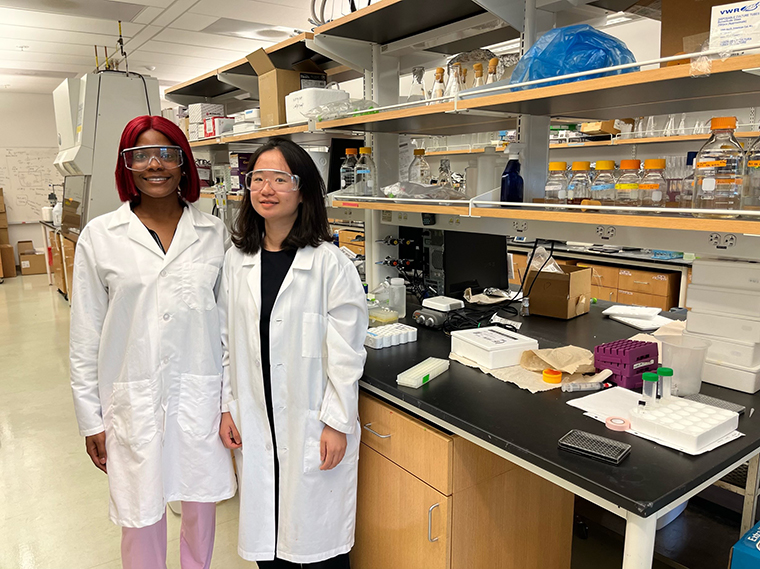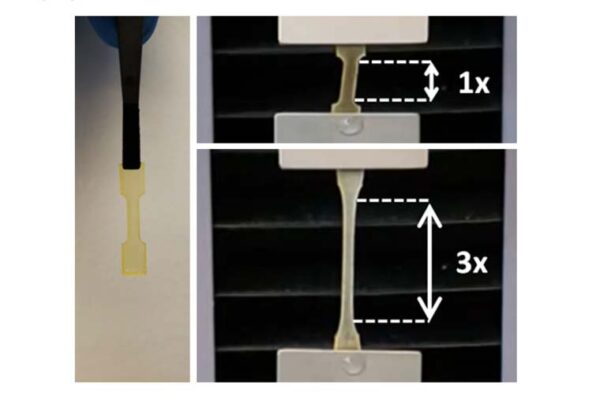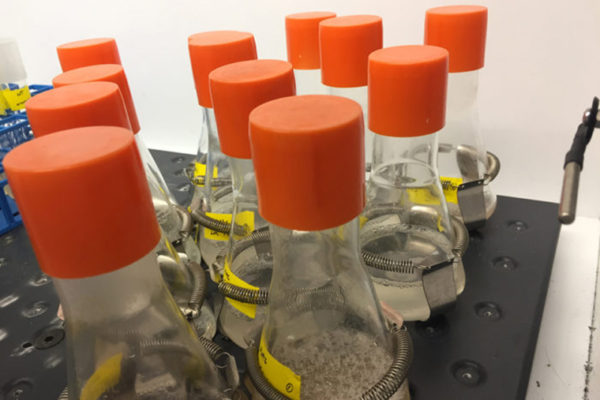Many kids dream of being astronauts when they grow up, but Millie Savage is contributing to something bigger: helping future space explorers manufacture their own supplies in space conditions.
Savage, an undergraduate student at Lincoln University and a research intern in the Department of Energy, Environmental & Chemical Engineering in the McKelvey School of Engineering at Washington University in St. Louis, is part of WashU’s team participating in the Biomanufacturing: Survival, Utility, and Reliability beyond Earth (B-SURE) program, a Defense Advanced Research Projects Agency (DARPA) program. In partnership with DARPA and NASA’s Kennedy Space Center, the WashU team is exploring what alternative feedstocks can be consumed by host organisms for future biomanufacturing in space conditions.
WashU’s team includes Fuzhong Zhang and Yinjie Tang, professors, and Jinjin Diao, a staff scientist, all in energy, environmental and chemical engineering in McKelvey Engineering; and Himadri Pakrasi, a George William and Irene Koechig Freiberg Professor in Arts & Sciences. The researchers are testing the boundaries of what microbial species, such as yeasts and algae, can do with limited resources. The ability to produce needed materials away from Earth’s creature comforts will be critical to achieving humankind’s long-term aspirations in space.

Preliminary testing already provided evidence that the team’s cultivated microorganisms may be feasible drivers of biomanufacturing in orbit, near the moon or on Mars. But, when it comes to seeding interplanetary outposts, there are compelling reasons why it’s better to be safe than sorry. To ensure the lab-tested microbial species perform as well in space as they do on Earth, the tiny toilers are taking a trip to the International Space Station (ISS) to provide data on the effects of space conditions on bioproduction.
“Our goal with sending these samples to space is to see the feasibility of life beyond Earth,” said Hakyung Lee, an engineering graduate student who mentored Savage during her summer internship and serves as the WashU DARPA team coordinator. “We’re looking at how well various feedstocks — food for microbial species we’d grow in space — work for biomanufacturing.”
“A major motivation for my summer research was the goal of traveling to Kennedy Space Center to watch B-SURE samples get launched into space so they could be tested on the ISS,” Savage added. “Attending the conference was also an amazing opportunity to meet our NASA partners and get to know all the other people working on the DARPA project with us.”
Following the successful Aug. 26 launch to the ISS, NASA’s SpaceX Crew-7 tested the effect of microgravity on cell physiology and growth. WashU’s research team is especially keen to learn whether microbes lose their production abilities without gravity. Assuming the organisms pass this first test, future missions to the ISS will further analyze microbial utilization of alternative feedstocks under space conditions, and WashU will be involved in this advanced study of space manufacturing.
A growing partnership
As a summer researcher, Savage tested microbial growth in lunar regolith, but her role as a trailblazer extends beyond that research. Keesoo Lee, a professor of biology and Savage’s adviser at Lincoln University, a land-grant and historically Black university in Jefferson City, Mo., recruited Savage to intern at WashU as part of an ongoing partnership between the schools.
Funded by the National Science Foundation and the U.S. Department of Energy, the partnership includes summer research programs for Lincoln students who will work in WashU laboratories on projects related to cutting-edge biomanufacturing. Lee and Joshua Yuan, the Lucy & Stanley Lopata Professor and chair of energy, environmental and chemical engineering at McKelvey Engineering, envision that the partnership will help develop a diverse workforce well-trained in key aspects of the emerging bioeconomy, including artificial intelligence, bioinformatics and synthetic biology.
“Millie’s experience this summer working on a project with DARPA and NASA is truly exceptional,” Lee said. “Looking ahead, we’re excited to support a pipeline of students coming to WashU to gain hands-on lab experience, make connections with research partners, and have more doors open to them as a result, whether that’s graduate school or opportunities in industry.”
Though Savage was the first Lincoln student to participate in the joint biomanufacturing project at McKelvey Engineering, she said she hopes many more will follow in her footsteps.
“This was my first research internship, but with Hakyung’s mentorship, I quickly learned to take challenges in my stride and see that when something goes wrong, it only gets you closer to the solution,” Savage said. “A big challenge for me was being one of the only two Black people in the room at the NASA conference. It was another challenge that I turned into motivation. When there is no seat for you at the table, you make your own table. Now I can share my experience with my educated Black peers, and soon there will be more faces that look like me in the room with me, maybe even at our own table.”
Originally published by the McKelvey School of Engineering



